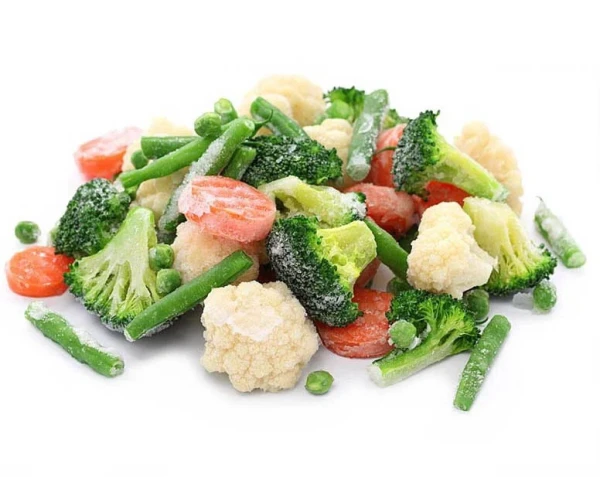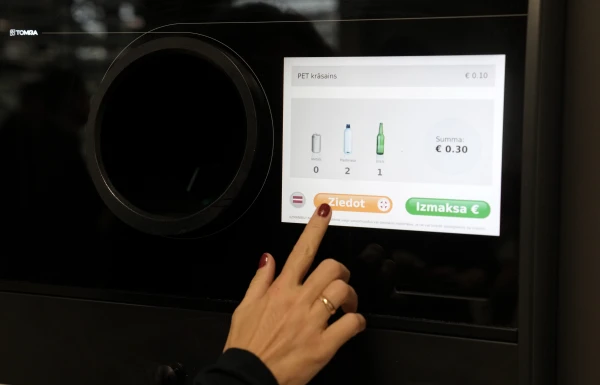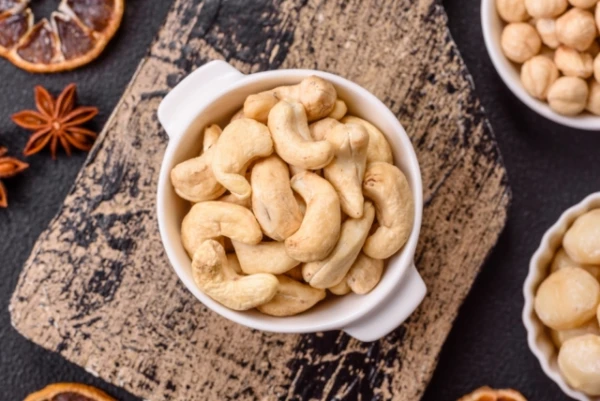
Many people are currently suffering from high blood pressure, or hypertension, which means they have an increased risk of heart disease and stroke. However, blood pressure can be controlled by changing one's lifestyle. This is reported by Eatingwell.
The most important aspect of a new lifestyle, claims the author of the article, registered dietitian and physician Andrea Mathis, is proper nutrition. According to her, consuming more fruits and vegetables can reduce sodium levels in the body and provide potassium, magnesium, and antioxidants that support vascular health.
Adding more vegetables to your diet is inexpensive even in winter. You can simply freeze them.
"In fact, frozen vegetables are just as nutritious as fresh ones. In frozen products, vitamins and minerals are sometimes preserved even better than in fresh ones that have been sitting on store shelves for several days," the expert writes.
She named four frozen vegetables that can be most beneficial if you want to control your blood pressure.
1. Frozen Brussels Sprouts
As stated in the article, dietitian Ambrosia Sublett recommends consuming frozen Brussels sprouts due to their fiber, iron, vitamin K, and potassium content - key nutrients that support heart health and regulate blood pressure.
A study published in 2024 in the scientific journal BMC Medicine showed that a diet rich in cruciferous vegetables (of which Brussels sprouts are one) helps reduce the risk of heart disease, and potassium content helps counteract the effects of excessive sodium intake, dilating blood vessels.
Additionally, the fiber found in these sprouts can improve cholesterol levels, while vitamin K supports artery health and calcium regulation.
2. Frozen Spinach
Spinach is an essential food for heart health due to its high potassium and magnesium content. These two micronutrients help lower blood pressure. The action of potassium is that it helps eliminate excess sodium and relieves tension in the walls of blood vessels.
Magnesium, as evidenced by a study published in 2020 in the scientific journal MDPI, works hand in hand with potassium. It helps regulate vascular tone, allowing them to relax, improves blood circulation, thereby reducing the load on the heart.
Spinach is also rich in dietary nitrates, which the body converts into nitric oxide - a compound that relaxes blood vessels, helping to improve blood flow.
Frozen spinach is not only convenient and nutritious but also very versatile. Since it is blanched before freezing, it cooks quickly and is perfect for various dishes.
3. Frozen Broccoli
Broccoli is rich in vitamin C, fiber, and antioxidants that help maintain cardiovascular health. Registered dietitian Anna Alfred discussed the results of a study published in 2023 in the scientific journal MDPI.
It is noted that, according to its findings, fiber helps lower LDL cholesterol (known as "bad" cholesterol), which can contribute to plaque formation in arteries and increase the risk of heart disease and stroke.
Antioxidants help reduce inflammation, which contributes to hypertension. The fact is that chronic inflammation causes blood vessels to become narrowed and stiff over time, which raises blood pressure and puts a strain on the heart. The antioxidants found in broccoli help counteract this process.
4. Frozen Cauliflower
Cauliflower is surprisingly rich in fiber and vitamin C, which support heart and vascular health. Fiber also keeps you feeling full longer, helping to maintain a healthy weight, thus preventing high blood pressure.
Vitamin C is a powerful antioxidant that helps protect the body from atherosclerosis, hypertension, and stroke.
The mild flavor and versatility of cauliflower make it a staple for freezing.
Tips for Choosing and Preparing Frozen Vegetables
-
When choosing frozen vegetables, look for options that list only vegetables - without added sauces, fats, or salt.
-
Blend frozen vegetables into smoothies.
-
Steam or bake vegetables, but do not boil them, as this process can destroy vitamin C and B vitamins.
-
Combine: mix several frozen vegetables to create a flavor-rich and nutrient-dense soup.














Leave a comment